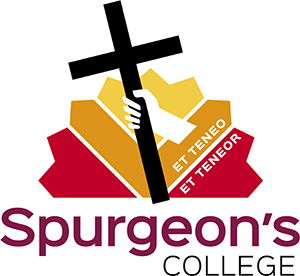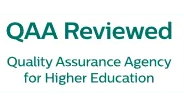Subject to validation
Course introduction
Our MA in Theology is designed to help you reflect theologically on matters of contemporary society and spirituality. Whilst the programme will deepen theological and biblical knowledge, it will instil habits of thought and inquiry that go beyond immediate knowledge acquisition. This diverse skill set will enable our graduates to engage creatively with our pluralistic, globalised and digital societies and making them attractive graduates in ministry and the secular job market.
The programme is designed with the following groups of students in mind:
- Theology graduates who have got a taste of academic theological studies and desire to go deeper.
- Ministers who want to pursue theological and biblical studies at postgraduate level.
- Individuals who may not have formally studied theology but have a proven track record of academic studies and want to attain skills and knowledge in theology at postgraduate level.
Programme Duration
Full-time students study the taught units over one year and finish their dissertation the following year (2-year programme).
Part-time students study the taught units over two years and have up to two years to complete the dissertation. (Although the dissertation may be completed in one year).
Mode of study
For those studying on campus in London, they follow a traditional pattern of attendance at college for seminars once or twice a week. Once students have finished the taught stage, they go on to work on their dissertation whilst still receiving regular supervision from their dissertation tutor. Throughout their studies they will attend the weekly postgraduate research seminar (online or in person).
For those studying by distance learning, lectures are held on zoom on Friday afternoons. Once students have finished the taught stage (part 1) they go on to work on their dissertation (part 2), whilst still receiving regular supervision from their dissertation tutor. Throughout their studies they will attend the weekly postgraduate research seminar (online).
Entry Requirements
There are two pathways on the MA which will each have their own entry requirements. Please note that each pathway will have slightly different structure as outlined below.
Pathway 1:For those with a higher education qualification in theology
The standard entry requirements are:
A degree in Theology or Religious Studies with at least second-class honours of 55% from an approved institution; OR
A degree in any subject with at least second-class honours of 55% and an additional qualification from an approved institution at level 4 (Certificate HE) or above, with marks at merit or higher, in Theology or Religious Studies.
Pathway 2: – for those without a higher education qualification in theology
The standard entry requirements are:
- A degree in any discipline with at least second-class honours of 55% or above from an approved institution; AND
- Successful completion of an entry assessment. (further details below).
Applicants who do not meet the standard entry qualifications, or who do not have a higher education qualification in theology, will be assessed by the submission of a written assignment set by the College (typically a 3000-word essay), evidence of relevant experience, and/or interview. The assignment will be marked according to typical criteria for graduate level work, by a member of the College academic staff. Taken together with other evidence and interview (where used), the College will determine whether the applicant has the necessary academic potential for postgraduate study of theology, i.e. competency in theological knowledge, understanding and critical thinking skills.
The possible outcomes of any assessment and/or interview mentioned above are:
- Accepted onto the Master’s programme.
- Accepted onto the Postgraduate Certificate programme, (successful completion of which will allow progression onto the Master’s programme)
- Accepted onto the Master’s programme but will be required to audit a specified number of units at undergraduate level.
- Accepted onto the Postgraduate Certificate programme but will be required to audit a specified number of units at undergraduate level.
- Deemed unsuitable.
Programme Structure
Part one comprises of five taught units (120 credits) and part two, a dissertation of 15,000 words (60 credits).
Structure of Pathway 1
Core units (90 credits):
- Approaches to Theology (15 credits)
- Theological Research (15 credits)
- Theology for the World Today (30 credits)
- Biblical Hermeneutics (30 credits)
Dissertation (60 credits):
- 15,000 words
Structure of Pathway 2
Core units:
- The Study of Theology (15 credits)
- Theological Research (15 credits)
- Biblical Hermeneutics (30 credits)
- Introduction to Christian Theology (30 credits).
Dissertation (60 credits):
- 15,000 words
Optional units for both pathways (30 credits):
There will be a variety of optional units available.
Exit qualifications
- Postgraduate Certificate: Students who complete 60 taught units on the programme
- Postgraduate Diploma: Students who complete 120 credits on the programme
- Master of Theology awarded on completion of the whole programme (180 credits)
How much does it cost?
The course costs £9000 for the entire course, payable in instalments.
A deposit of £300 is payable when accepting an offer.
This course in full time and part time mode (either on campus or by online learning) is registered with Student Finance England. If you are eligible, you can get a masters’ loan to pay your fees. To find out more, please click here.
How to apply
You can apply by completing an online application form using the link below.
Questions:
Please contact the admissions department for more information.
Email: admissions@spurgeons.ac.uk
Tel: 07425 716696
For further details about his course see the programme specification.



